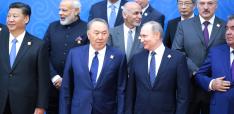Book Review: Angela Merkel: The Chancellor and Her World

Angela Merkel: The Chancellor and Her World by Stefan Kornelius. Translated by Anthea Bell and Christopher Moncrieff. Richmond/Surrey: Alma Books, 2014. 300 pp, £9.99 paperback 9781846883187
This translation of Kornelius’s 2013 German text is only the second book in English to date focusing on a national leader repeatedly designated by Forbes as “the world’s most powerful woman.” Equally noteworthy is the fact that all but one have been written by full-time journalists. In contrast to the original, this version bears the subtitle “the authorized biography,” although most of it reflects on the Chancellor’s “style,” travails and responses in various policy domains during her first two terms. The work is divided into thirteen chapters, beginning with efforts to grasp the foundations of Merkelmania, explaining little about her uncanny ability to remain popular among a motley crew of voters. Merkel is introduced as a leader whose decisions have been rendered “momentous” due largely to the major crises that have precipitated them.
Turning to her “sheltered life in the GDR,” Kornelius stresses Merkel’s upbringing in a “politically engaged and open minded household.” She was an ambitious yet modest student who “never felt that the GDR was [her] natural home” but who “always made use of the opportunities” (p. 16) afforded by the socialist state. Revisiting themes covered more extensively by Jacqueline Boysen and Evelyn Roll, this chapter skips ahead to Merkel’s post-unity efforts to grapple with the Westerner’s different understanding of 1968, their obsession with her clothing and hair, and her trips abroad during the final months of the GDR. Chapter Three makes short shrift of her entry into ministerial and party politics, followed by a fourth on the “beliefs that make her tick.” Her favorite virtues include discipline, punctuality, seriousness of purpose and Demut (humility), coupled with core values of freedom, responsibility, security and tolerance.
Promising to address the “necessary evils” of coalition politics, Kornelius spends more time on Merkel’s private love for the USA and her disenchantment with its erratic anti-social and war-mongering policies, as well as on her benign neglect of France. Very little time is spent on the Grand Coalition, and only a few pages on four stressful years of the conservative-liberal coalition. It is unclear why the author postpones further discussion of key inner-circle players (viz., her “boy group” and “girls’ camp” members) and the Merkel Method until much later in the book (p. 246ff), given their significance for coalition dynamics. Kornelius defines this method as “the quiet battle involving herself and her closest and most loyal colleagues, methodically working through a problem, splitting it into its various parts and then working on a solution step by step, bit by bit. If it turns out well, Merkel is happy. If part of it fails to work, no one will notice…” (p. 243).
We learn more about Merkel’s reflections on “identity” and what it means to be “German” in a difficult fatherland. Here the translators miss the fine point of her analysis: “If Germany can find its identity and stand by it, that will be good for democracy …. A great deal of damage is done by what remains unsaid, concealed. We must develop a sense of our history as a whole, and then say: we are glad [froh] to be German. The words come easily to us” (p. 90). In fact, those words do not come easily to most western Baby-Boomers, as Merkel’s actual wording shows: So was geht mir schon über die Lippen [“That is already easy for me to say”].
Moving on to war and peace, Kornelius stresses the Chancellor’s need to walk a fine line between NATO/United Nations obligations and Germany’s aversion to military engagement. Post-9/11 developments have allowed Merkel to shift the paradigm, describing the Bundeswehr presence in Afghanistan as necessary for “protection of life here in Germany from the evil of international terrorism” (p. 142). Occupying a temporary seat on the U.N Security Council, Germany’s troubled vote regarding the Libyan no-fly zone led Merkel to violate her two foreign policy precepts: never go against the USA and never contribute to a European split (p. 152). Westerwelle’s abstention (which may go down as “her worst foreign policy decision”) satisfied neither side, resulting in a serious break between the Chancellor and her Foreign Minister.
Regularly accused of never taking a clear stand on issues, the Chancellor is unquestionably “passionate and single-minded” concerning her “fascination with Israel.” Her insistence that German history is indivisible accords a “shared responsibility” to east and west Germans, even though GDR legitimacy as a “new socialist nation” rested on its self-separation from the Nazi past. The unique German-Israeli relationship is facing new challenges, however, based on the need to preserve a shared memory of the past, to confront shifting public attitudes, to meliorate new threats from Iran, and to determine appropriate levels of financial and military assistance to “the Jewish state,” Netanyahu’s antagonistic policies notwithstanding.
Kornelius devotes a mere eight pages to Merkel’s private love for Russia but contentious relationship with Putin, and less than ten pages to balancing German business interests with her human rights conviction vis-à-vis China. The longest chapter (58 pages) is devoted to “the great crisis” throughout the Euro-zone and the Chancellor’s efforts to turn Europe into a “rational construct” grounded in diversity, freedom and tolerance. Here Kornelius argues that Merkel has “abandoned the community method” of leaving the power of initiative to the Commission, overlooking the fact that its supranational writ does not include banking or taxation. Kornelius likewise holds that Merkel’s “new method” puts the ball back in the member-states’ court, “allowing states to conclude treaties with each other, to find ways of solving their problems together” (p.250). As a journalist he is perhaps unfamiliar with the EU’s complex inner workings. The approach is not really new: under the Open Method of Coordination, only those states choosing to participate set themselves indicators, benchmarks and time-tables, then mutually monitor each other’s progress. Nor does Merkel’s second proposal, to elevate the Council to a second chamber (Bundesrat?) adequately reflect EU history: the Council used to be the only decision maker, relying on unanimity, until successive enlargements led to Qualified Majority Voting. Indeed, the European Parliament had to fight for the right of “co-decision” as the only directly elected EU body qua democratic watch-dog vis-à-vis national leaders. Two more short chapters discuss attempts to keep Britain in the EU, and Merkel’s future prospects as a “post-political Chancellor.”
With all due respect to the difficult task of translators, this edition contains some irritating errors. Merkel’s grandfather reportedly died in 1939 (actually 1959), when she was five; Foreign Minister Frank Walter Steinmeier is later identified with the FDP (p. 96). Some idiomatic terms are translated too literally (funkstille as “radio silence”), others too loosely. When Merkel has problems understanding westerners’ rejection of nuclear energy, she is quoted using the term “the fucking plutonium economy” (p. 23) – a much more offensive term than the German Scheißplutoniumwirtschaft. The author himself errs in recounting Joschka Fischer’s doubts about Iraq’s “weapons of mass destruction.” Fischer is depicted as “whispering in Rumsfeld’s ear …. ‘We are not convinced’” (p. 116). Featured prominently on You-tube (https://www.youtube.com/watch?v=_k_QbpFl7RM), the Munich Security conference exchange shows Fischer at the podium addressing Rumsfeld and the entire audience, declaring loudly and clearly, “I am not convinced….”
Kornelius’s characterization of Merkel as “the perfect post-political politician” contradicts his otherwise positive definition of her “method”: “To be post-political means not committing yourself, letting yourself drift, having few or no convictions, always being flexible, waiting for the right moment… ” (p. 274). Why is a “method” involving rational calculation, argument and counter-argument, a preference for consensus and compromise, the inclusion of new stakeholders and a rejection of “outdated ideological positions” reduced to “style” and “drift”? Despite his ostensible admiration, the author cannot resist engaging a bit in old fashioned media-sexism. The German version, published shortly after the 2013 elections, makes veiled references to Merkel’s likely “retirement” before the end of her third term. Kornelius notes that “seven years as Chancellor” during which major crises occurred in rapid succession “can wear down even a woman with an iron constitution and an inexhaustible appetite for work” (p. 275). He adds: “She has led Germany for longer than anyone ever expected ... but from the first day after re-election she would also be burdened with the knowledge that time is running out…” (pp. 278-279). Did he argue the same during the 16-year reign of Helmut Kohl, beset by a nuclear waste transport crisis, mass protests against Pershing II/Cruise missile deployments, mega-financial transfers leading to unification-induced recession, three years of unprecedented xenophobic violence, and a publically bemoaned Reformstau?
The book nonetheless provides useful insights on the Chancellor and her world for non-German readers. But this reviewer still wonders why it was stamped “the authorized biography.”
Joyce Mushaben is Curators’ Professor of Comparative Politics and Gender Studies in the Department of Political Science at the University of Missouri-St. Louis.


